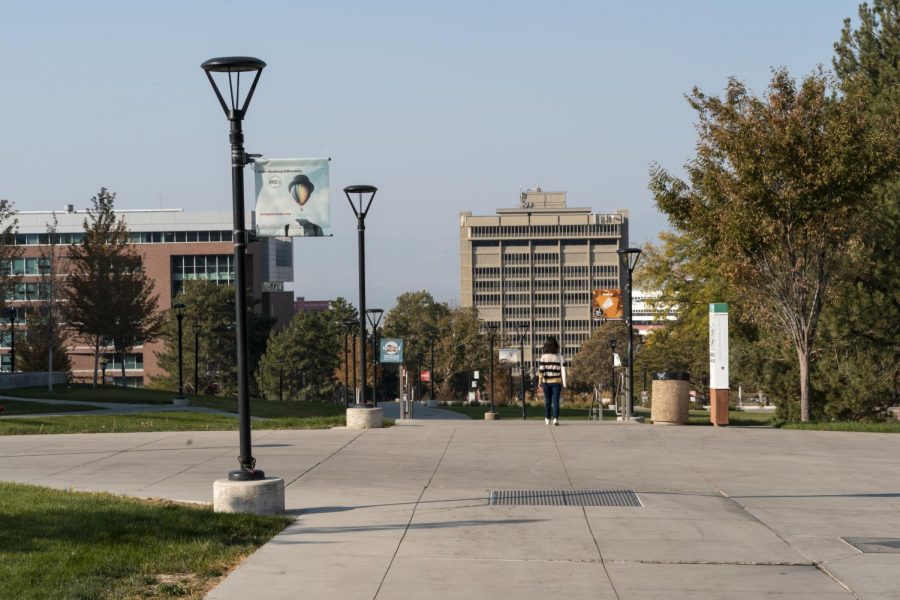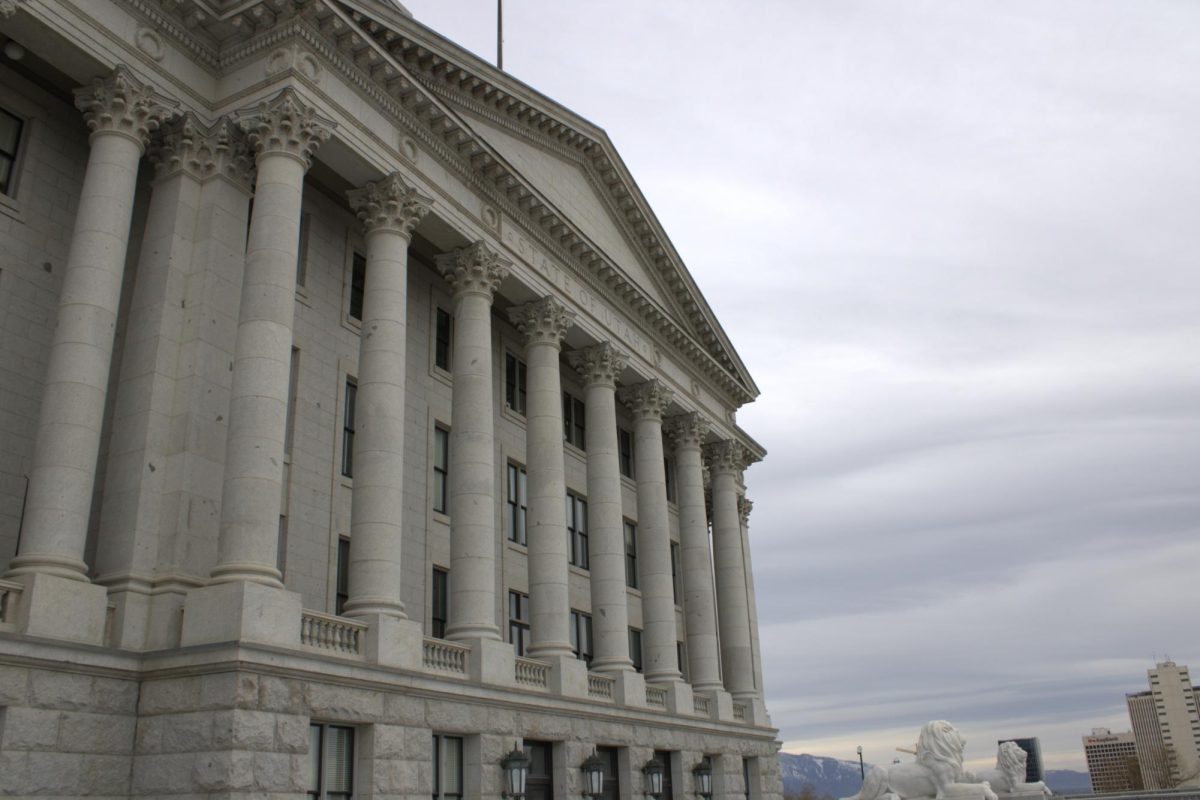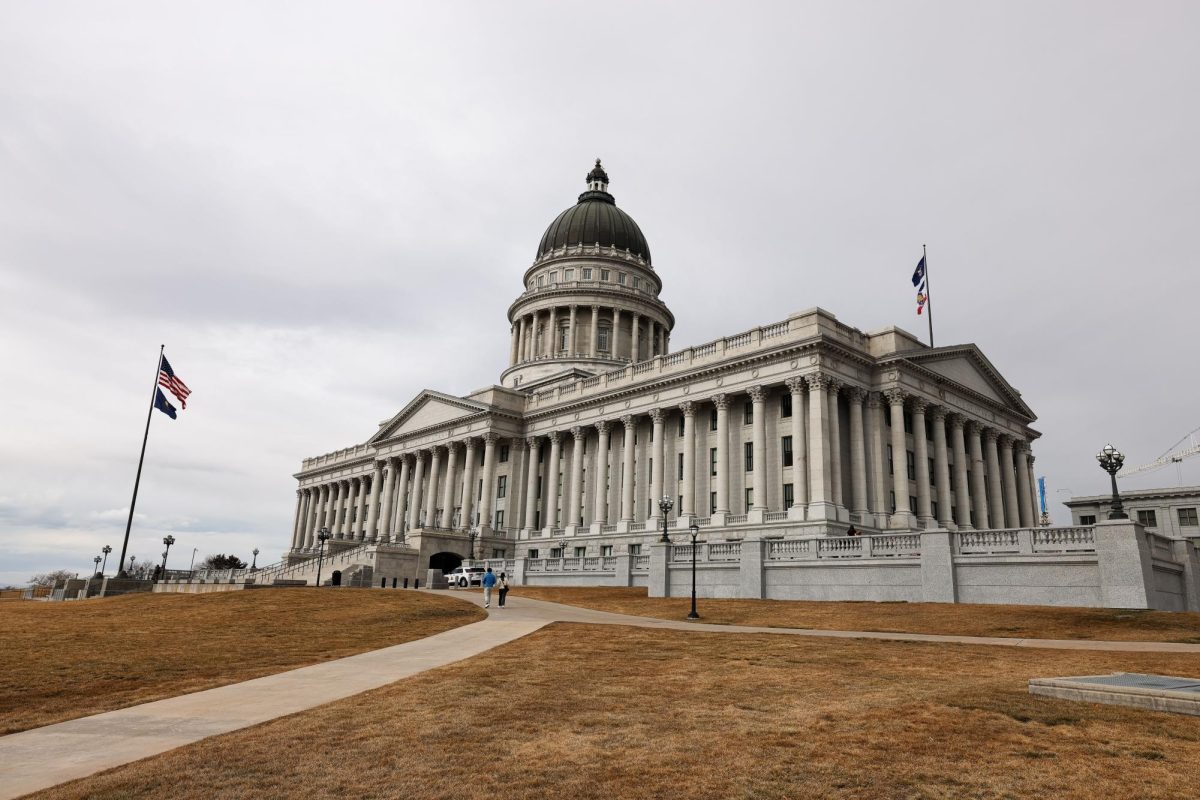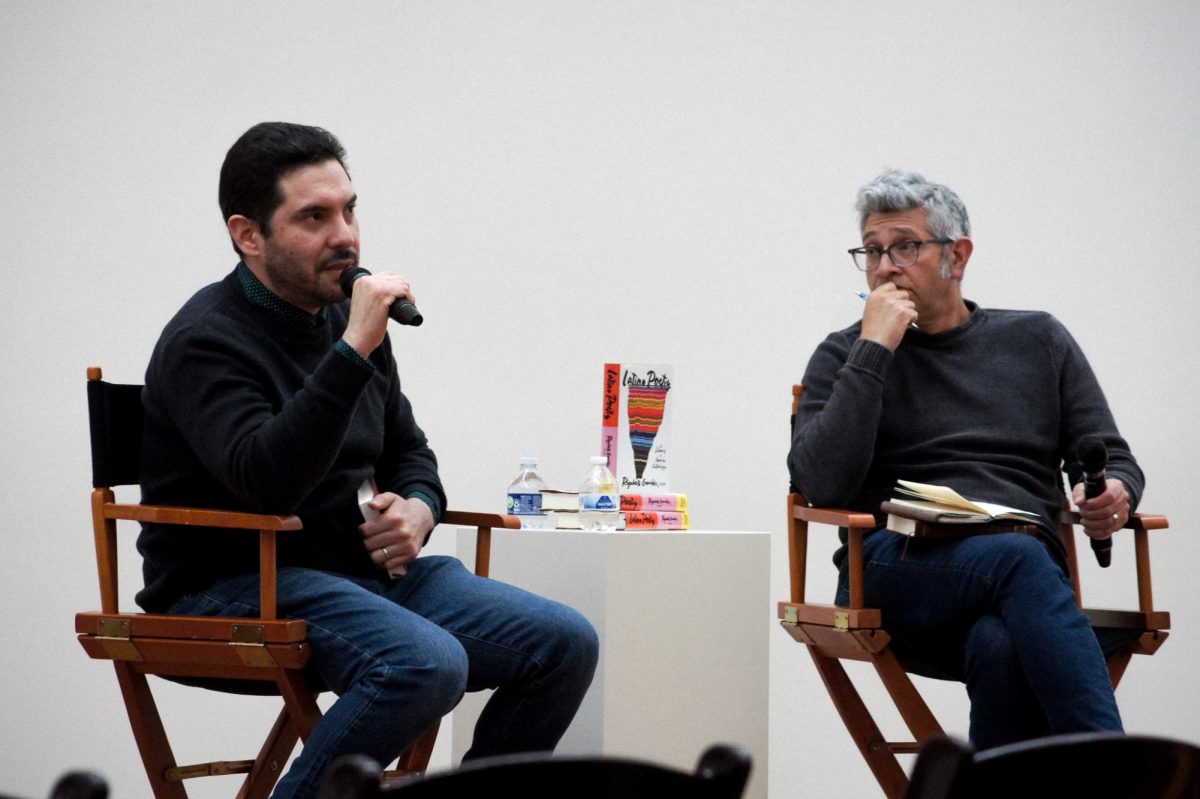Stalking Suspect Released From Jail, Banned From U Campus
University of Utah Campus in Salt Lake on Oct. 11, 2020. (Photo by Jake Stranzl | The Daily Utah Chronicle)
June 18, 2022
The University of Utah Police Department arrested Anietie Umoren, a registered sex offender, for stalking and trespassing on campus on Thursday, June 9.
The arrest came two days after a female student called the University Police to report Umoren harassing and stalking her and one other student. According to Lt. Ryan Speers with campus police, they’ve since had other victims come forward and say they’ve had at least a single contact with the man that was similar to other reports.
Umoren was transported to the Salt Lake County Jail upon arrest and remained in custody for seven days before being released on Thursday, June 16. A safety warning alert was sent out the same day to inform students and other members of the campus community.
The alert also states that the university has issued a permanent campus ban to the suspect and encourages anybody who sees Umoren on campus to call University Police at 801-585-2677.
Speers said campus police are still investigating the events and screening charges for harassment and stalking.
“We did book on those charges of harassment and stalking and we will be looking to screen those charges in addition to any others that come up in the course of our investigation,” Speers said.
Directly after Umoren’s arrest, the U had issued a no-trespass directive to bar him from returning to campus, until the more permanent “campus ban” could be given. Speers said that the campus ban has now been issued, and explained the difference between the two.
“Say an individual is frequently in a place or maybe sleeping in a building that doesn’t have any business being on the campus … we might trespass that individual from a particular building for a period of 72 hours,” Speers said. “When we have situations that are a bit more egregious … we would up that to an administrative ban.”
Speers said the administrative ban is a process “almost like a court proceeding” in which information is gathered and the individual is given notice and a chance to respond. Once the decision is made, a formal letter is issued to the individual informing them that they are no longer welcome at the U. The letter specifies a set amount of time for the ban, which can vary by case but is usually around three years.
Despite this ban, Speers said it will remain difficult for campus police alone to enforce it considering the size of the U’s campus. He said members of the campus community can help fill this gap, which was a major reason why it seemed necessary to him to send another update on the incident.
“We do our best obviously, but there’s just so many buildings and spaces, we can’t be everywhere,” Speers said. “We really rely on the community as well, so that’s another reason for the alert … I need you or someone else … to say ‘Hey, I saw that individual over here,’ and point us in the right direction so that we can come into contact and effectively do our job.”
Speers said despite this unfortunate incident, he sees positives in the way the university was able to handle the situation. He especially praised the victims in this case, both those who initiated the report and those who came forward later, strengthening the case for the ban.
“I’m incredibly proud of the victims for standing up and coming forward … and I would encourage any person on this campus to do the same,” Speers said. “You should never have to feel uncomfortable being on this campus.”
Speers urged people to report any behavior that concerns them to campus police, regardless of how serious they think it is.
“If something is out of line, even if you don’t think it’s necessarily criminal, please call and report it … every time we get a phone call, it’s something that’s going to be investigated,” Speers said. “I’d rather come to a thousand of these situations that were just a misunderstanding than let one slip through the cracks.”
Another factor that contributed to swift action in this process, Speers said, was effective communication between different departments at the U, which is something he said they’ve been working on to improve campus safety.
“This was a collaboration between Marriott library security, university police, our dispatch, on the administrative ban side between the Dean of Students Office, the Office of Equal Opportunity and Affirmative Action … [and] a senior vice president’s office,” Speers said. “I think it illustrates a lot of the continued partnerships and things that we’re working on cohesively as the university is trying to improve things for safety.”












